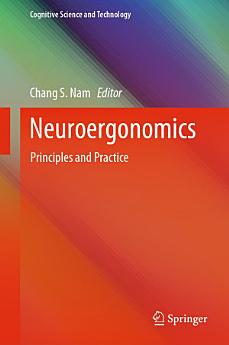Neuroergonomics: Principles and Practice
Chang S. Nam
Peb 2020 · Springer Nature
E-book
472
Mga Page
reportHindi na-verify ang mga rating at review Matuto Pa
Tungkol sa ebook na ito
This book sums up key research findings, and theoretical and technological advances having a direct bearing on neuroergonomics. Neuroergonomics is an emerging area whose Neuroergonomics is an emerging area that is collectively defined as the study of human brain function and behaviour in relation to behavioural performance in natural environments and everyday settings. It helps readers to understand neural mechanisms of human cognition in the context of human interaction with complex systems, as well as understanding the change of perception, decision-making and training in humans. The authors give new insights into augmenting human performance, reflecting upon the opportunities provided through neuroergonomics research and development.
Computer systems acting on data from behavioural-output, physiological, and neurological sensing technologies are used to determine the user’s cognitive state and adapt the systems to change, support, and monitor human cognition. Various domains and case studies delve into the field of neuroergonomics in detail. These include, but are not limited to:
Computer systems acting on data from behavioural-output, physiological, and neurological sensing technologies are used to determine the user’s cognitive state and adapt the systems to change, support, and monitor human cognition. Various domains and case studies delve into the field of neuroergonomics in detail. These include, but are not limited to:
- an evaluation of technologies in health, workplace, and education settings, to show the different impacts of neuroergonomics in everyday lives;
- assessment of real-time cognitive measures;
- dynamic casual interactions between inhibition and updating functions, through analysis of behavioral, neurophysiological and effective connectivity metrics; and
- applications in human performance modelling and assessment of mental workload, showing the reader how to train and improve working memory capacity.
Neuroergonomics: Principles and Practice provides academic practitioners and graduate students with a single go-to handbook that will be of significant assistance in research associated with human factors and ergonomics, human-computer interaction, human-systems engineering and cognitive neuroscience.
Tungkol sa may-akda
Dr. Chang S. Nam is currently professor of Edward P. Fitts Department of Industrial and Systems Engineering at North Carolina State University, USA. He is also an associated professor of the UNC/NCSU Joint Department of Biomedical Engineering, Department of Psychology and Biomedical Research Imaging Center. He received a PhD from the Grado Department of Industrial and Systems Engineering at Virginia Tech in 2003. His research interests center around brain-computer interfaces, social cognitive and affective neuroscience, computational neuroscience, and trust in human-robot interaction. Dr. Nam has received the NSF CAREER Award (2010), Outstanding Researcher Award (2010-2011), and Best Teacher Award (2010-2011). He is the main editor of “Brain–Computer Interfaces Handbook: Technological and Theoretical Advances” (CRC Press). He is a recipient of the US Air Force Summer Faculty Fellowship Program Award in 2018. Currently, Nam serves as the Editor-in-Chief of the journal Brain-Computer Interfaces.
I-rate ang e-book na ito
Ipalaam sa amin ang iyong opinyon.
Impormasyon sa pagbabasa
Mga smartphone at tablet
I-install ang Google Play Books app para sa Android at iPad/iPhone. Awtomatiko itong nagsi-sync sa account mo at nagbibigay-daan sa iyong magbasa online o offline nasaan ka man.
Mga laptop at computer
Maaari kang makinig sa mga audiobook na binili sa Google Play gamit ang web browser ng iyong computer.
Mga eReader at iba pang mga device
Para magbasa tungkol sa mga e-ink device gaya ng mga Kobo eReader, kakailanganin mong mag-download ng file at ilipat ito sa iyong device. Sundin ang mga detalyadong tagubilin sa Help Center para mailipat ang mga file sa mga sinusuportahang eReader.






